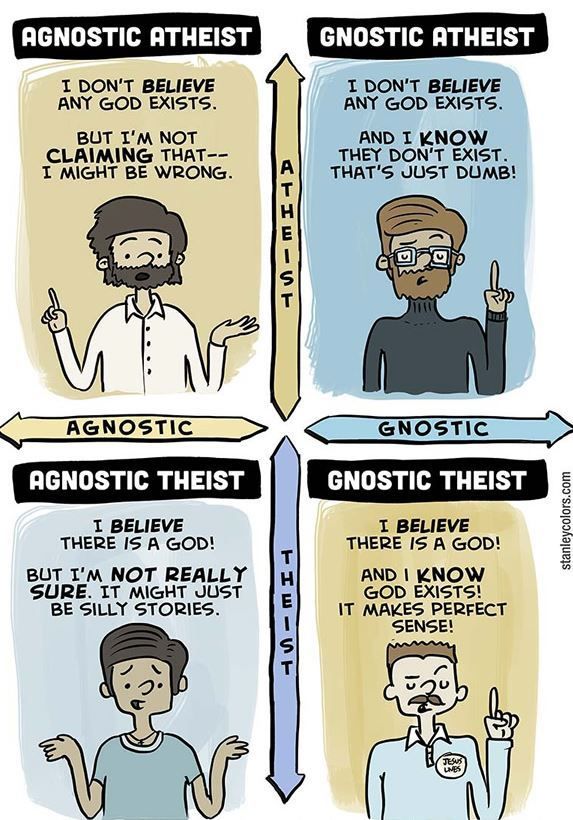Nah m8 you just enjoy ur time here on Earth.
Read up on the Burden Of Proof. http://en.wikipedia.org/wiki/Philosophic_burden_of_proof
Also understand that most atheists don't actually say there is no god, they say they reject the theistic claims that a god exists. Most atheists would call themselves agnostic atheists (Most who read up on the subject), as Atheism/Theism deals with belief and Agnosticism/Gnosticism deals with knowledge. Intellectually honest atheists would label themselves as agnostic atheists as we don't believe (atheism) but we can not know there is no god (Gnosticism).




 Faith in the predictability and constant conjunction of events and our environment in the world in which we live.
Faith in the predictability and constant conjunction of events and our environment in the world in which we live.
